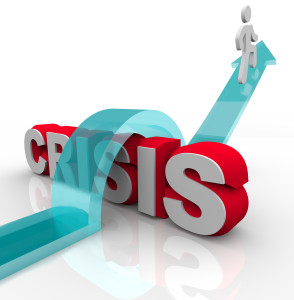
During a crisis, if you’re not in front of the story, you’re behind it. In today’s virtual macrocosm, blink and your company’s latest blunder is headlining national online news portals and garnering its own Twitter hashtag.
Knowing how and when to respond is the only way to ensure public safety and move against financial ruin, or worse, loss of your company’s reputation.
Think you’re immune? Think again. Multi-billion dollar companies (looking at you Enron) and mom-and-pop small businesses alike have shut their doors after running poor, or nonexistent, crisis management campaigns.
While no one can predict the timing of a crisis with 100% certainty, one thing is clear: it’s not if you’ll encounter one, but when.
Whether you’re dealing with a recall, outbreak, scandal or something way out of left field, crisis management is vital to ensuring your company is left standing in the wake of an unexpected mishap.
News goes viral in a flash
The blogosphere, twittersphere and ubiquitous unbridled reach of the Internet ensure that once a story breaks, it breaks wide open. Everyone from your stakeholders to other news media, are going to turn to the Internet during a crisis. Armed with phones in hands, you’ll want to be sure you’re in charge of the conversation so your message is the first they see.
For example, within minutes of the recent tragedy in Nepal, whisperings of a high-ranking Google Executive’s death began to surface.
With a properly trained crisis management team in place, Google was able to leverage all possible platforms in which to communicate with the public.
What can you do: Make sure your team is in place before disaster strikes. In a crisis, no one has the luxury of time. Once it hits, you’ll have missed your window to pre-assign roles, mantle your key players and thoroughly prepare the team. What’s worse — every minute you don’t respond the problem grows exponentially.
Messaging is a fickle art
Using the most recent Blue Bell recall as an example, we’ve seen firsthand how quickly people can turn when the messaging lacks in sentiment.
The public statements after a listeria outbreak that lead to multiple deaths has been labeled an ineffective, unfitting response to grieving families and victims. Public outcry and professional opinion alike regard the initial messaging as lacking remorse or humanity.
Hiding behind a cold corporate tone shrouded in legality, the letter from their CEO has been heavily criticized after speculation arose it was written by Blue Bell’s legal counsel.
What can you do: It’s understood that lawyers must give guidance and input (especially in the case of public safety); however, it’s paramount your messaging does not read that way. A dose of humble humanity is the best recourse, but don’t gloss over tangible actions you’re implementing to thwart future issues, and do be transparent in both your remorse and the fallout of the crisis. Provide the public ready, easy access to information about the issue. A collection of pre-drafted messages which have been reviewed by your legal department can provide a template for crisis statements. Just make sure statements don’t sound canned or unauthentic. Sincerity always rings true.
Restoring and rebuilding your reputation through media
In the early stages of a crisis, the media may seem more foe than friend. However, media is a powerful entity for restoring and rebuilding the public’s trust.
A few years ago when JetBlue came under fire for more than 1,000,000 delayed or canceled flights in conjunction with an ice storm, they tore through a well-planned media circuit which ultimately tipped the scales back in their favor.
According to BusinessInsider.com, while it wasn’t enough to stop the immediate backlash, it was key in their recovery:
“In the weeks that followed, JetBlue managed to squash much of the uproar by being as public and straightforward as possible. [JetBlue’s CEO, David] Neeleman went on YouTube, the Today Show, Letterman, and Anderson Cooper, not pleading his case, but apologizing for his company’s faults.
Though there was much reputational damage done, JetBlue’s comeback allowed it to regain some of its luster. For an airline that differentiates itself so heavily on customer service, it was crucial that they did.”
What can you do: Work with the media, not against it. In doing so you can bolster your customer relations efforts in the weeks and months following a calamity. Again, the trick is to know how to leverage which outlets, and for what express purpose.
Ultimately, while in life and business alike you may do well to expect the unexpected, you certainly can’t anticipate it. Nor can you avoid it.
Though companies may not be able to circumvent disasters, the more swift, decisive and human the action, the better the outcome. Crisis management helps chart a course toward building trust, arming the public with necessary facts, and taking bold action to save your company’s only real asset: its reputation.